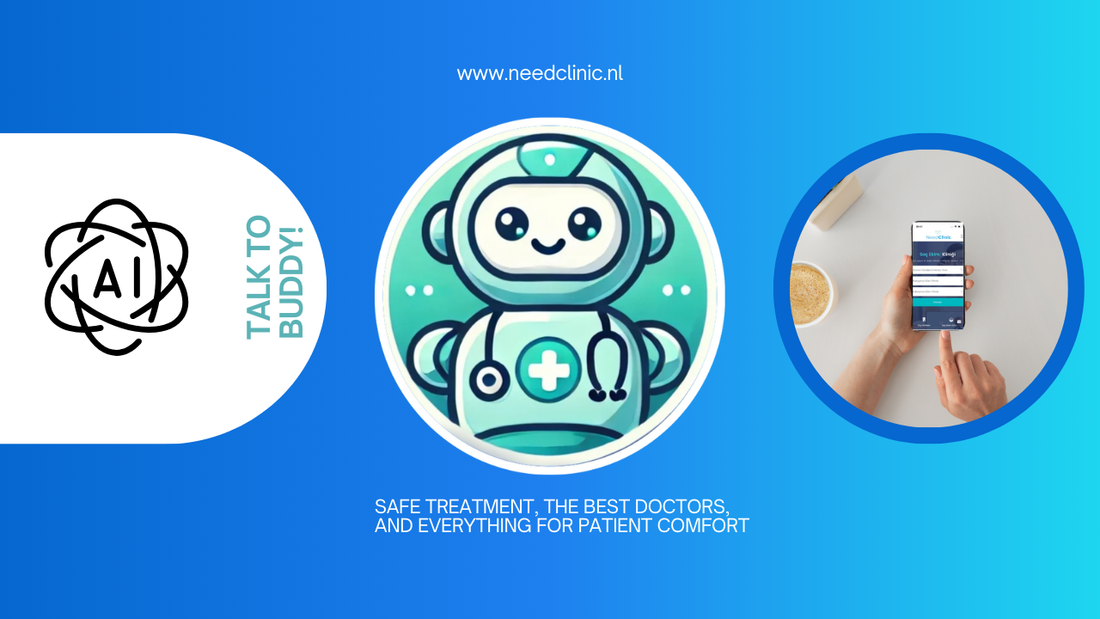
How AI Supports Health Tourism Firms
Share
How AI Supports Health Tourism Firms
1. Personalized Patient Experiences
AI allows health tourism companies to provide highly tailored services to their clients. By analyzing patient data such as medical history, preferences, and budget, AI systems can suggest customized treatment options, suitable clinics, and travel plans. For instance:
- AI-powered chatbots: Platforms use smart assistants to communicate with patients, answering questions and providing recommendations in real-time.
- Predictive analytics: AI tools predict treatment outcomes and recovery times, helping patients make informed decisions about their healthcare journey.
2. Improved Clinic and Doctor Matching
AI helps health tourism platforms connect patients with the most suitable doctors and clinics. By evaluating various factors such as the clinic's certifications, the doctor's experience, patient reviews, and treatment success rates, AI ensures the highest standards of care. Companies like NeedClinic already utilize this feature to build trust with clients.
3. Enhanced Communication
Language barriers are often a challenge in health tourism. AI-powered translation tools enable seamless communication between patients and healthcare providers, reducing misunderstandings and ensuring clarity in medical discussions.
4. Travel and Logistics Planning
AI simplifies the complex logistics of health tourism, from booking flights and accommodations to arranging transportation. These systems can identify cost-effective options, suggest travel itineraries, and even reschedule appointments in case of delays.
5. Post-Treatment Follow-Up
Post-operative care is a critical aspect of health tourism. AI tools assist in monitoring patients' recovery by:
- Sending reminders for medication or follow-up appointments.
- Offering virtual consultations through telemedicine.
- Alerting healthcare providers if complications arise based on patient-reported symptoms.
Real-World Examples of AI-Driven Health Tourism Firms
-
NeedClinic
This platform combines AI-powered chatbots, clinic matching, and product recommendations for hair transplants and dental treatments. Buddy, its AI chatbot, provides personalized guidance, ensuring a seamless patient journey. -
Caresyntax
A healthcare AI firm that assists surgical teams in optimizing procedures. Their technology is also used by medical tourism companies to assess surgical risks and outcomes for international patients. -
HealthVoyager
Uses AI-driven virtual reality tools to prepare patients for procedures. By offering realistic 3D simulations, patients can better understand their treatments, reducing anxiety. -
Qunomedical
An AI-backed platform connecting patients with accredited healthcare providers worldwide. It uses machine learning algorithms to evaluate treatment quality and patient satisfaction.
Benefits of AI in Health Tourism
- Increased Efficiency: Automation of routine tasks, such as appointment scheduling and travel arrangements, allows firms to focus on patient care.
- Higher Accuracy: AI minimizes human errors in data processing, ensuring precise patient records and better treatment outcomes.
- Global Accessibility: AI-powered platforms can cater to clients worldwide, breaking down geographical and language barriers.
- Cost Savings: AI tools reduce operational costs, making high-quality healthcare accessible to more people.
Challenges in Implementing AI in Health Tourism
Despite its numerous benefits, integrating AI into health tourism is not without challenges:
- Data Privacy Concerns: Handling sensitive patient information requires stringent compliance with regulations like GDPR and HIPAA.
- Ethical Issues: Over-reliance on AI in critical decisions could lead to ethical dilemmas, especially in life-altering treatments.
- High Initial Investment: Developing and implementing AI systems involves significant costs, making it inaccessible for smaller firms.
- Trust Issues: Patients may hesitate to trust AI-driven recommendations over human expertise, requiring companies to strike a balance between automation and personal interaction.
Future Outlook: The Role of AI in Health Tourism
The integration of AI into health tourism is still evolving, but its potential is immense. As AI technologies become more sophisticated, we can expect:
- Predictive Health Tourism: AI could forecast demand for specific treatments in certain regions, helping firms prepare in advance.
- AI-Powered Treatment Matching: Real-time analysis of global medical data may enable platforms to suggest emerging treatments or clinical trials.
- Virtual Health Tourism: Combining AI with virtual reality, patients could experience "virtual consultations" with doctors or even explore clinics before committing to treatment.
Conclusion: A Balanced Perspective
AI is undoubtedly transforming health tourism, offering innovative solutions for both patients and service providers. While its benefits are undeniable, firms must address the ethical, legal, and technical challenges associated with AI implementation. By maintaining a balance between human touch and AI-driven efficiency, health tourism companies can ensure a future where technology enhances—not replaces—the patient experience.
Hasan Uğur Güneş, a pioneer in this field with his AI-powered platform NeedClinic, demonstrates how embracing technological advancements can lead to better outcomes for patients worldwide. As the industry evolves, health tourism firms that adopt AI responsibly will likely emerge as leaders in providing efficient, reliable, and personalized services.

